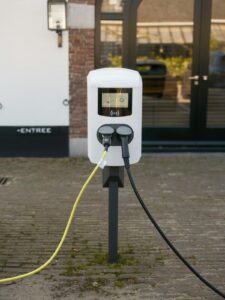
Home / EV Charging News / Educating Consumers About the Benefits and Limitations of Electric Cars
Electric cars are becoming increasingly popular due to their environmental benefits and technological advancements. However, despite their numerous advantages, there is still a lack of awareness among consumers about the benefits and limitations of electric cars. Educating consumers about the features, benefits, and limitations of electric cars could go a long way in boosting their adoption rates.
Consumer education is critical in boosting the adoption of electric cars. By educating consumers about the benefits and limitations of electric cars, they can make an informed decision about whether to switch to an electric car. Education can come in various forms, including:
Fortunately, advancements in battery technology and charging infrastructure are helping to address some of the limitations of electric cars. As electric cars become more mainstream and charging infrastructure becomes more widespread, these limitations will become less of a concern for consumers.
In addition, as more consumers adopt electric cars, economies of scale can lead to lower prices and increased availability of electric cars, making them even more accessible to the average consumer.
In conclusion, educating consumers about the benefits and limitations of electric cars is essential in increasing their adoption rates. Through a combination of test drives, marketing and advertising, dealer education, and government incentives, consumers can make informed decisions about whether to switch to an electric car. The benefits of electric cars, such as lower emissions and operating costs, make them an attractive option for environmentally and cost-conscious consumers, and as technology advances and infrastructure improves, electric cars will become even more accessible to the average consumer.
$2,890.00 Original price was: $2,890.00.$2,790.00Current price is: $2,790.00.
$3,950.00 Original price was: $3,950.00.$3,450.00Current price is: $3,450.00.
$1,650.00 Original price was: $1,650.00.$1,590.00Current price is: $1,590.00.
$2,290.00 Original price was: $2,290.00.$2,150.00Current price is: $2,150.00.
$1,290.00 Original price was: $1,290.00.$799.00Current price is: $799.00.

Your Power Management Partner for Over 25 Years Future Generations Depend on Our Decisions Today ™
2024 © All rights reserved by CyberSwitching